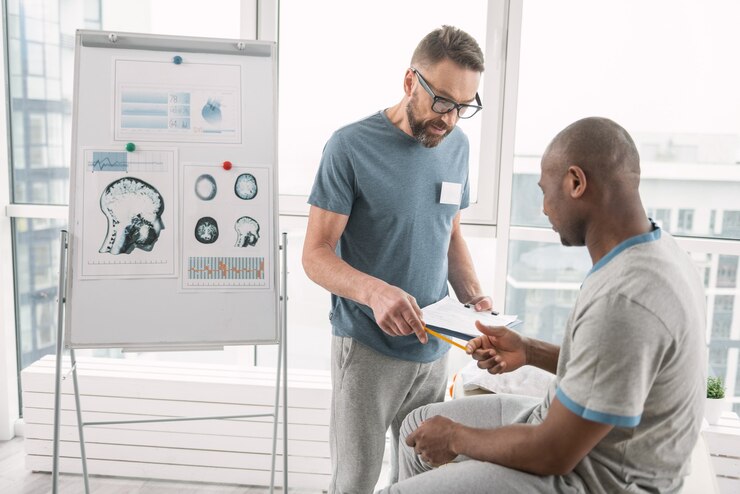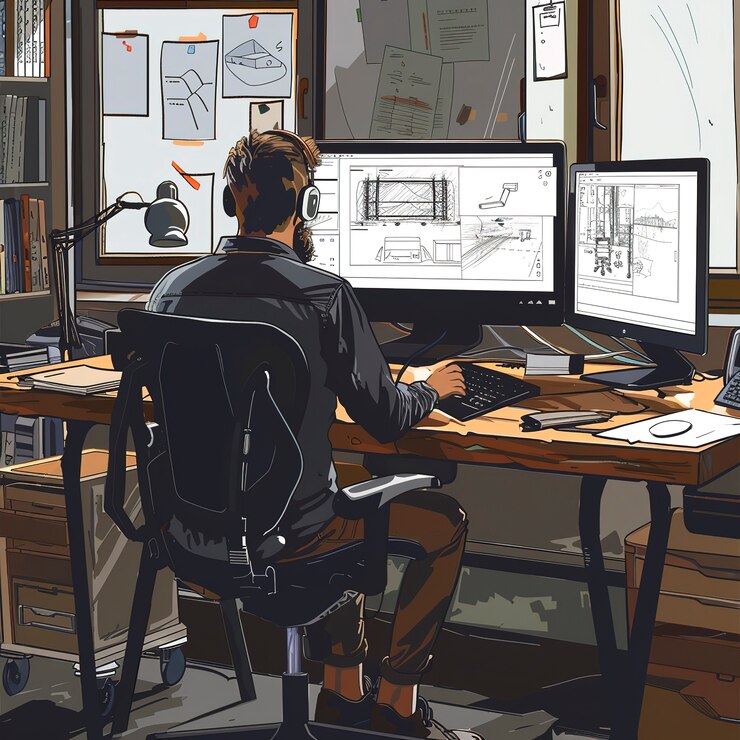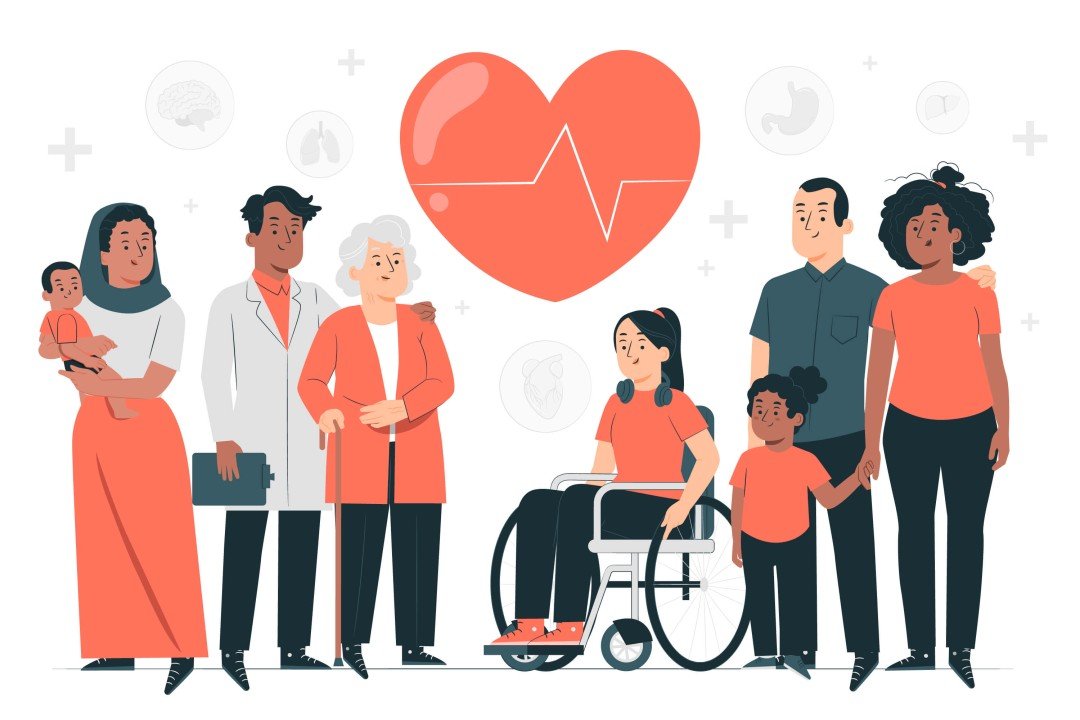Psychological well-being is a crucial component of overall health, and addressing mental health issues requires a collaborative effort from a variety of professionals. Among these key players is the mental health technician, a vital specialist who provides direct care to individuals with mental disorders. This article delves into the work environment, responsibilities, essential skills, and potential career growth of these unrecognized heroes in the field of mental health.
Who Is a Mental Health Technician?

A mental health technician is a protected service provider whose primary focus is to help individuals with mental disorders or developmental disabilities. They function under the direction of a licensed independent practitioner, such as a psychiatrist, psychologist or a registered nurse, in various settings, such as hospitals, rehabilitation facilities, and outpatient departments. They are aimed at helping patients to maintain stability and get through the day.
Responsibilities of a Mental Health Technician
The duties of a mental health technician are vast and vary, as it is with most patients who have mental health illnesses. Key duties include:
1. Providing Direct Patient Care
Mental health technicians provide basic patient care, including feeding, dressing, and washing the patient. This direct support is especially critical where the person involved has severe mental illness or developmental disability.
2. Monitoring Patient Behavior
Mental health technicians monitor patients’ behavior and record their emotions, activities, and signs. Based on this information, other members of the sizeable multi-professional healthcare team must modify treatment strategies and approaches.
3. Delivering Therapeutic Interactions
In most organizations, mental health technicians play or lead in recreational and treatment procedures to develop patient interpersonal skills, lower tension, and foster emotional health. Such activities include artwork making, group sessions, or even sports activities.
4. Ensuring a Safe Environment
Policies on safety are of utmost importance when it comes to matters concerning mental health. It also focuses on providing care and support to patients, including handling a patient’s crisis or physically restraining a patient who could be a danger to them or others.
5. Supporting Treatment Plans
They work with other medical professionals to put into practice the different courses of treatment. They motivate their patients to take their doctor’s instructions, attend therapy, and stick to their prescribed medicines.
Essential Skills for a Mental Health Technician
Mental health technicians have to be knowledgeable about certain technicalities, be good interpersonal relations individuals, and have the capacity to cope with emotions. Here are some of the most essential skills:
1. Empathy and Compassion
At the heart of this role lies the ability to empathize and understand the challenges faced by individuals with mental health issues. A mental health technician must be compassionate and genuinely concerned for their patient’s well-being.
2. Communication Skills
So, the ability to communicate the correct information to patients and other healthcare team members is fundamental. Mental health technicians require listening, good communication, and problem-solving skills to manage aggression.
3. Observation Skills
A mental health technician should be able to notice changes in the mood of a particular patient. This skill is essential for putting things right at the right time.
4. Patience and Emotional Stability
Interaction with people with mental health issues is always challenging. Mental health technicians must be patient and control their emotions, including moments of stress or unpredictability.
5. Physical Stamina
It may be a very tiring position and requires the use of limbs and body, such as helping the patient walk or exercise.
How to Become a Mental Health Technician

If you’re interested in pursuing a career as a mental health technician, the following steps outline the typical pathway:
1. Obtain the Necessary Education
The vast majority of mental health technician jobs require a minimum of a high school diploma or GED. However, some employers may prefer candidates to have post-secondary education—for instance, an associate degree in psychology, mental health, or a related profession.
2. Gain Relevant Experience
Prior working experience in caregiving or a healthcare organization will come in handy. Volunteering at mental health facilities or acting as a caregiver is recommended to gain valuable experience and prove one’s dedication to the profession.
3. Complete Specialized Training
Many schools have programs that prepare students for becoming mental health technicians. Such programs include patient care, crisis intervention and mental health disorders.
4. Obtain Certification
Though not always essential, Certification can add credibility and portability to professional credentials. Professional associations like the American Association of Psychiatric Technicians (AAPT) have certification tests that may attest to your competency.
5. Pursue Continuing Education
The provision of mental health care is not an exact science. Therefore, any new information that can be acquired should be utilized. Ever a busy person, everyone needs to take up continuing education to sharpen the skills required for the job market.
Work Environments for Mental Health Technicians
Mental health technicians’ practice in diverse sectors, each providing different occasions and difficulties. Typical work environments include:
1. Hospitals
On psychiatric wards or in general hospitals, mental health technicians offer on-duty care to patients experiencing acute mental health conditions.
2. Residential Treatment Centers
These are centers where people suffering from severe mental illnesses or learning disabilities can receive their permanent residence. Psychiatric aides help residents in their daily living and engage them in personally centred treatment plans.
3. Outpatient Clinics
Outpatient mental health technicians work with patients who come to scheduled therapy sessions and help patients but do not offer around-the-clock care.
4. Community Programs
Some community-oriented clients are usually treated with rehabilitative and reintegration services to regain their residential freedom and gain essential skills for living.
Challenges and Opportunities of the Mental Health Technician

Challenges
- Emotional Stress: Sometimes, seeing the patients’ challenges can be emotionally draining.
- Physical Demands: This is a physically demanding position, often involving lifting some objects.
- Unpredictability: Every day may present different issues a learner faces; hence, flexibility is essential.
Rewards
- Making a Difference: It is rewarding to help patients attain the best quality of their lives possible – because you get to see the result of a job well done.
- Growth Opportunities: Work experience as a mental health technician can be a stepping stone for higher levels of practice in mental health. This potential for career growth can be a source of motivation and optimism for those considering this profession.
- Diverse Work Settings: Learn that a diversity of environments enables the working professional to locate an area of interest and specialization.
The Growing Demand for Mental Health Technicians
The demand for mental health technicians, among other mental health workers, is still increasing as more people come to realize that they have mental disorders. The U.S. Bureau of Labor Statistics predicted that employment of psychiatric technicians and aides will improve continuously due to the advancing need for mental health care.
Conclusion
A Mental health technician faces many daily challenges and job satisfaction as they seek to apply technical knowledge, skills, and patience to handle their cases. These specialists have a very important function in that they work with people experiencing some form of mental illness and assist them in their process of healing and rehabilitation. With the increasing concern about mental health, the role played by mental health technicians will still be crucial in changing the current mental health care system to a better one.

























